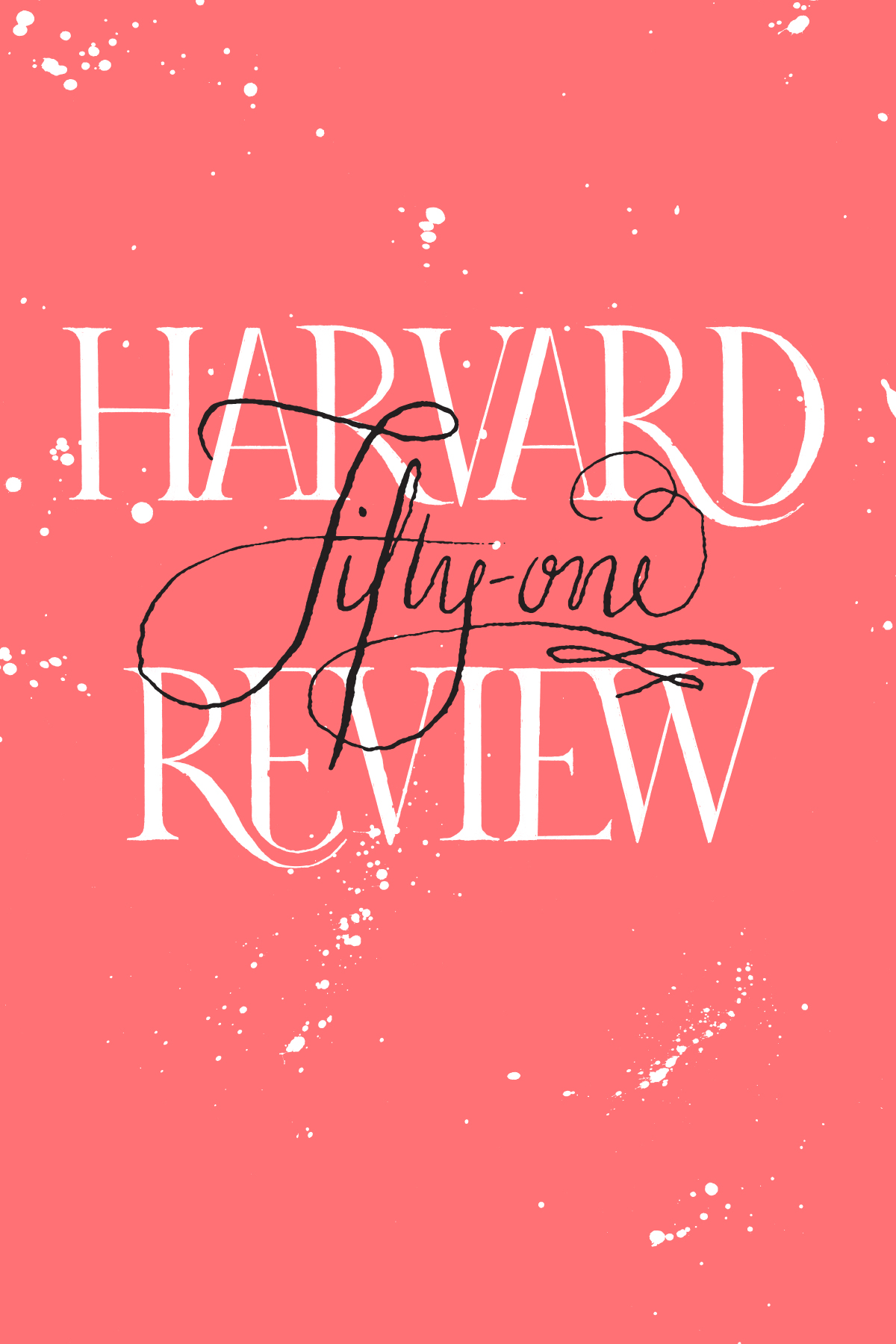HR 51 Editorial
by Christina Thompson
Organizations like Harvard Review are meant to have mission statements, but somehow I’ve never quite gotten around to writing one. So, a few weeks ago, I signed up for a CLMP (Community of Literary Magazines and Publishers) webinar on crafting such a text—an experience that quickly reminded me why I’d put it off for so long.
A mission statement is difficult because it’s inherently reductive. One suggestion, for example, was that we try to come up with a set of adjectives that describe the kind of writing we like and that we choose to publish. Okay, I thought. I can do that. How about smart, for starters? I have always liked writing that is clever, but, of course, there are different kinds of clever. Joan Wickersham’s essay in this issue about memoirists who recant is particularly clever in the conception, that is, it’s just a great idea. But there are other writers who are clever at the level of the sentence, clever in the use of words: Ben Miller’s essay on marriage, for example (“What attributes of our loving had waltzed us in the direction of longevity?”), or the virtuosic poet Sylvia Legris (“ Chastise the botanically criminal Manchurian elms”).
Then, again, you don’t want everything to be sophisticated. Sometimes the virtue of a piece is that it’s simple, both in the language and in the presentation of the world. I’ve always had a soft spot for directness, exhibited here in a story by Richard Carson, whose quiet, rather sad tale about caring for a cantankerous and decrepit father seems to speak a kind of bare-bones truth. But then there is also writing that is forceful and authoritative, like the work of Tracy K. Smith, who in a poem called “Hill Country” channels the voice of none other than God. Another bravura performance in this issue, this time by someone who is astonishingly young, is the story “No Spanish” by Moira McCavana, a recent Harvard graduate who writes about language and family and faraway places with the grace and confidence of someone twice her age.
And then what about funny? It’s hard to find funny writing, but in this issue we have several funny pieces, including one about being Jewish in Poland by Eileen Pollack (not inherently a funny subject, but funny in her hands), and another, a charming piece by Stuart Gelzer, about a Georgian immigrant named Zaza who turns up unexpectedly—and inconveniently—at the narrator’s door. Then there is also witty, which is like a cooler, drier kind of funny, or like a cross between funny and smart. This is the category into which I’d put Hannah Rosefield’s essay about being a stranger not so much in a strange land as in a land inhabited by strange birds. Another witty piece of writing which is also quietly subversive is Cecily Parks’s “Texas Natives,” a poem made entirely from Mexican, Spanish, and Native American names of plants.
We always want to be publishing work that is ambitious, including some that is occasionally opaque. And what about suspenseful? Unexpected? Engaging? Elegant? Erudite? What set of adjectives will ever do, when the task of editing is actually to recognize all the different ways in which writing can be great? But, wait, maybe that’s it, maybe that’s our mission— though I’m not sure our webinar leader would agree.
Before I sign off on this issue, I want to add one final note. In 2018 a member of the staff of Houghton Library will be retiring, someone who has been not only an administrative savior from my first day on the job (I will never forget his kindness to me in those early, rather awkward weeks), but a tireless champion and loyal subscriber of Harvard Review. That person is Dennis Marnon, and I want to say publicly that we could not have done it without him and thank him with all my heart.
Published on October 17, 2024
First published in Harvard Review 51

